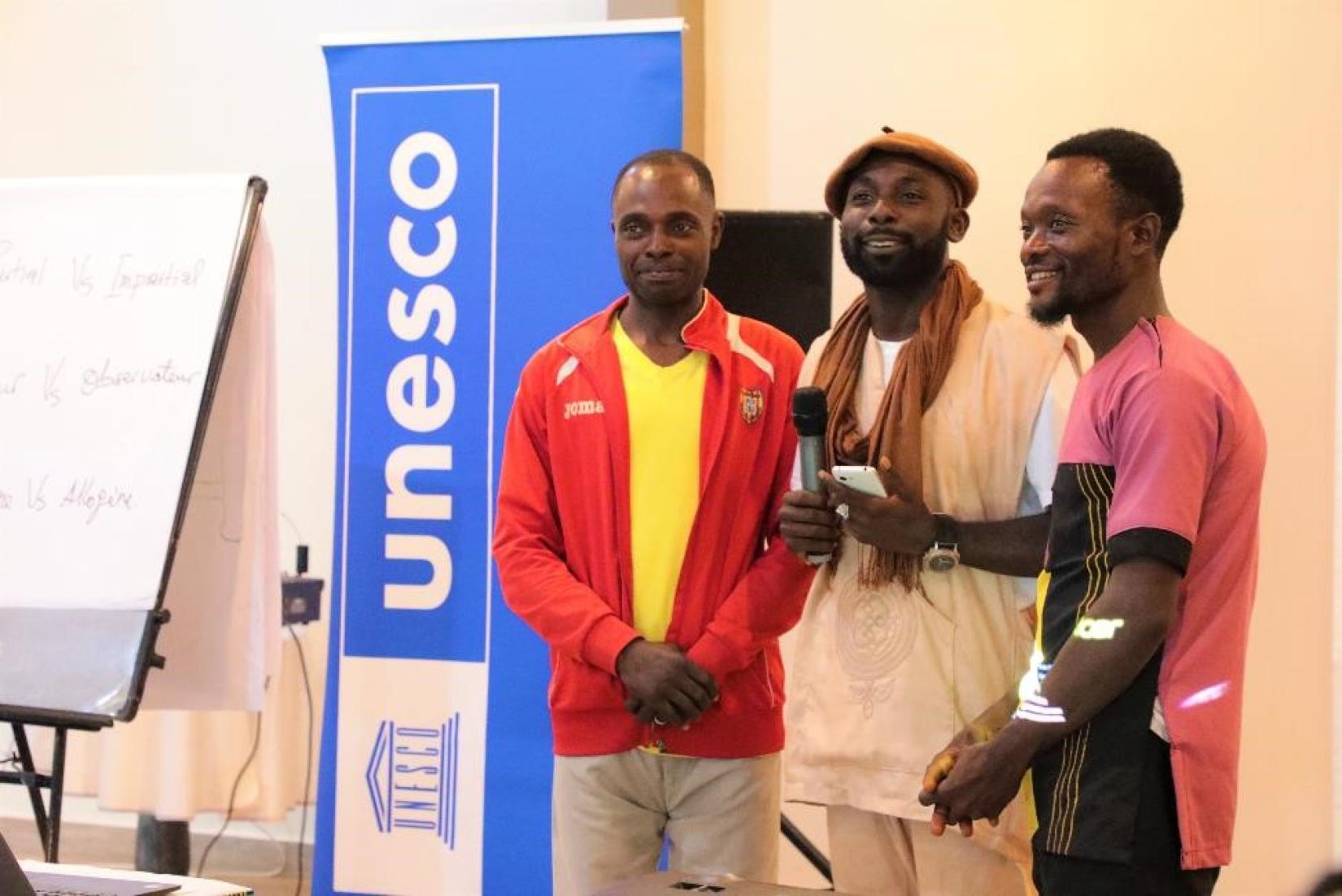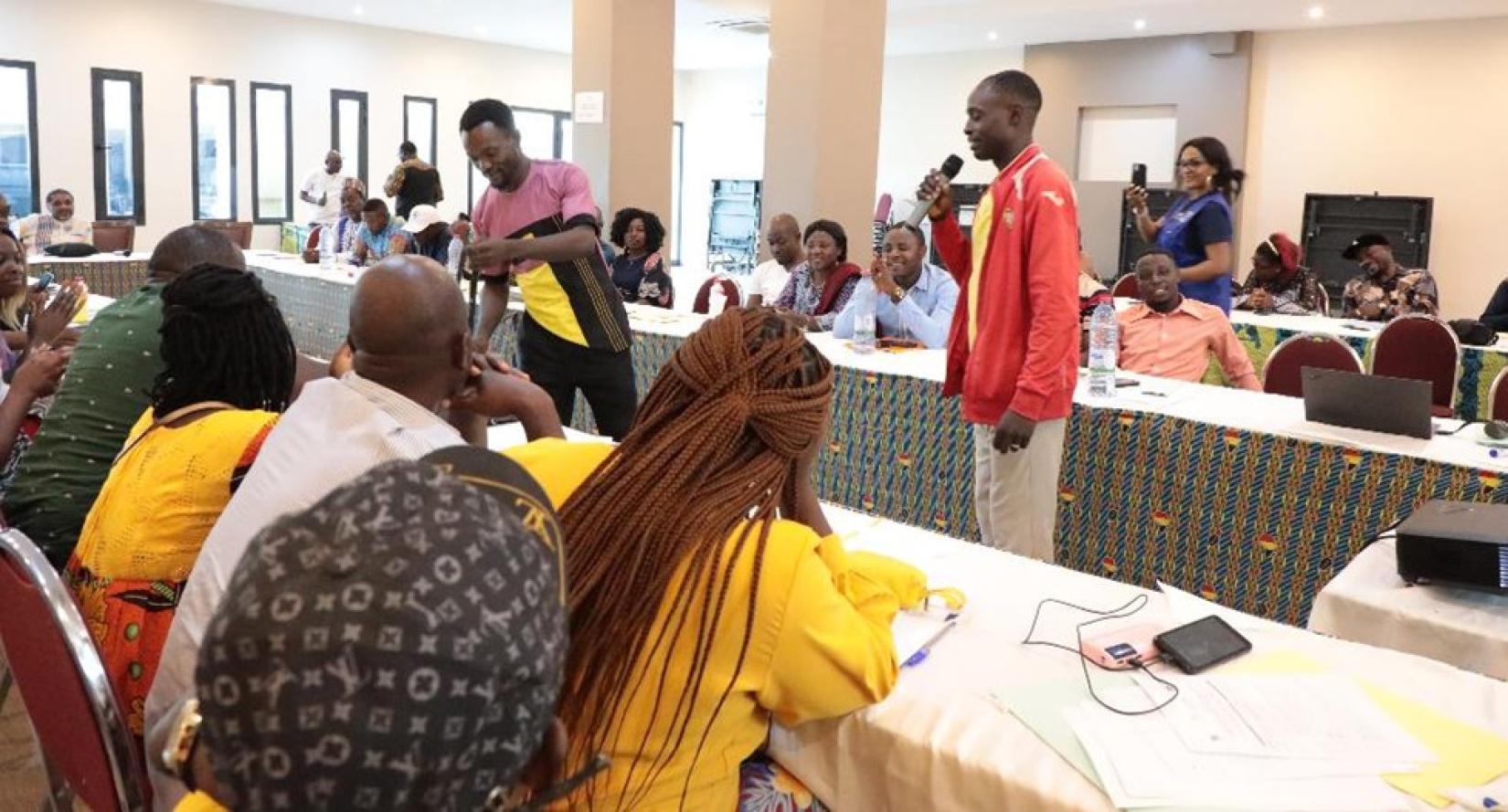UNESCO and IOM introduce young displaced men and women into quality information production for peace and local development in 8 councils of the Littoral and West regions of Cameroon.
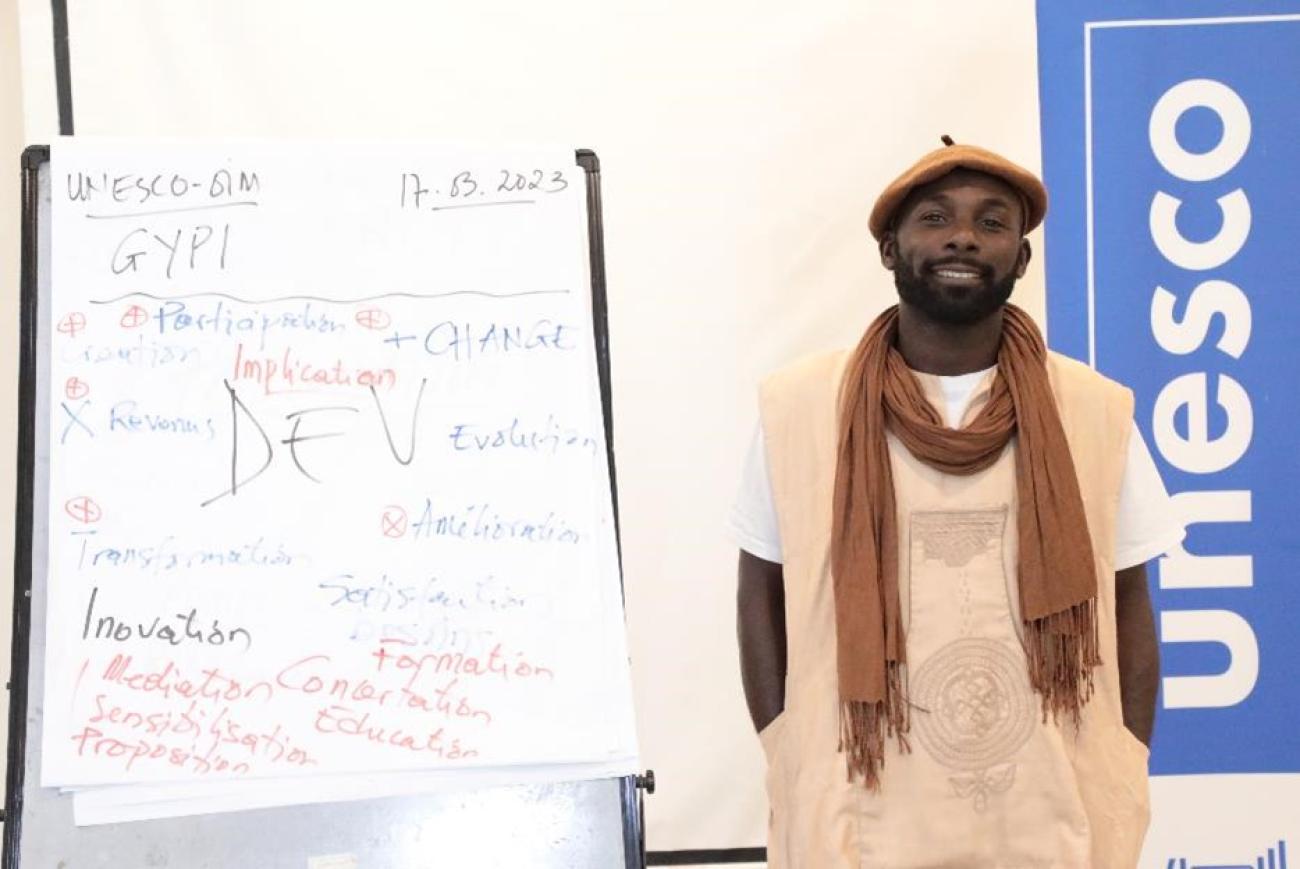
The workshop unfolded with five modules geared towards training the participants in greater understanding of community communication processes
“As we received a massive number of people in Nkongsamba due to the ongoing crisis in neighboring regions, the new realities of coexistence led to many tensions between host communities and displaced persons. I knew for sure our public communication approach at the radio had to change” – said participant Mohamadou Lawal, radio animator from Nkongsamba FM in the West Region.
UNESCO, under the joint GYPI/PBF project (with IOM) on “Peaceful Coexistence” in the Littoral and West regions of Cameroon, organized a three-day capacity building workshop aimed at equipping young communication drivers with knowledge and skill in producing quality information on peaceful coexistence in communities sheltering displaced persons in the Babadjou, Bafoussam I, Mbouda and Santchou Councils in the West Region; and Douala 4, Manjo, Melong and Nkonsamba I Councils of the Littoral Region.
The workshop which took place in Kribi (Cameroon) welcomed 56 participants from the Littoral and West regions, including community radio animators, Municipal Counsellors, local leaders of the National Youth Council and Peace and Gender Focal Points in the project's eight councils.
“The process of collecting, processing, and disseminating information on societal issues is no longer the exclusive domain of trained journalists. Today with the help of simple mobile devices and related technologies, individuals collect and spread information for mass consumption. The risk of misinformation exists and the consequences involved can be massive considering the vulnerability of the displaced persons” – said Mr. Hugues Ndih, Project Coordinator and lead facilitator.
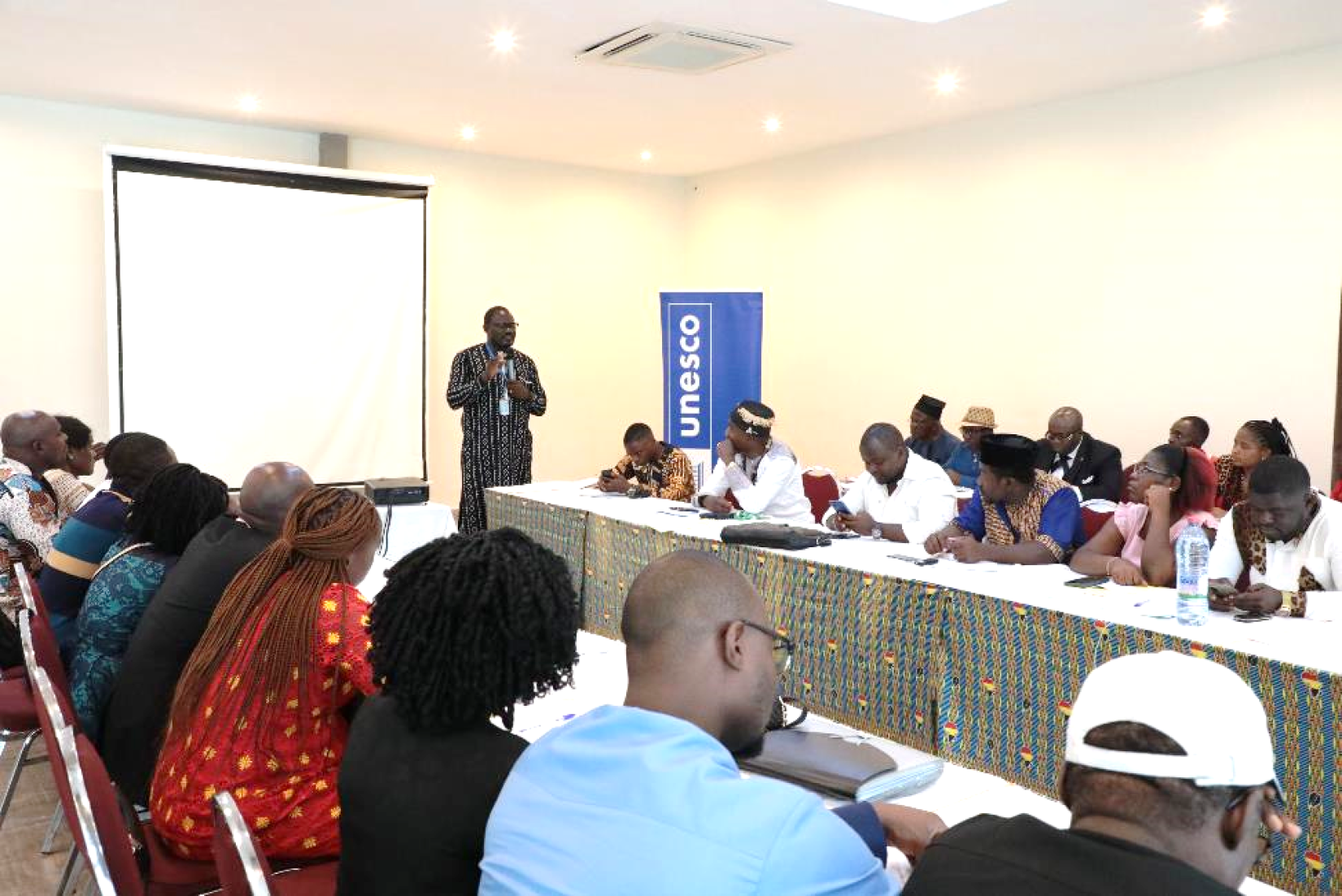
Considering the fact that the communication process could be a serious instrument of social peace and harmonious living together, respectful of fundamental human rights, the challenge of the workshop was to mobilize the young people who are so active on digital and traditional communication platforms (community radio stations), to understand the importance of peace in relation to the production of information for mass consumption in the local civic space that is their common living environment.
The workshop unfolded with five modules geared towards training the participants in greater understanding of community communication processes and the production of quality information through a responsible production process involving collection, processing and dissemination of quality information. In practical sessions, the participants sat in groups to brainstorm and develop editorial contents for development and peacebuilding.
“I came to the workshop with many questions about the limits of our journalism freedom to communicate news in a timely manner; because, a scene I once witnessed led me to convey the information as I saw it, and it led to very serious effects on my work. After the first session of the workshop, I understood that information which can cause conflict and aggravate tensions in the community must be properly assessed and carefully disseminated; while waiting for legal investigations to unveil the truth.” Said Mohamadou Lawal animator air Nkongsamba FM in the Littoral Region.
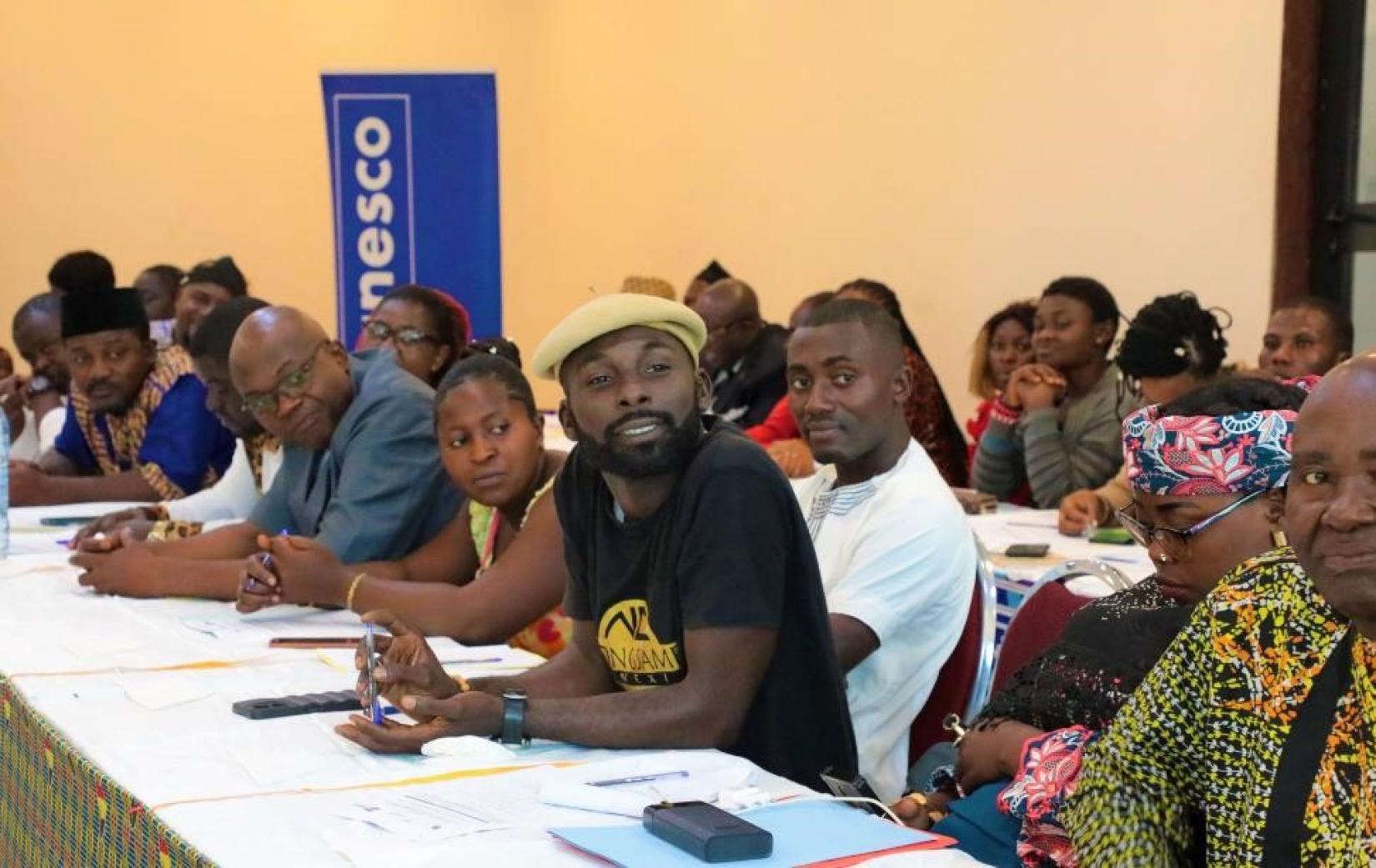
Further sessions of the workshop trained the participants in producing radio programs, production of gender-sensitive digital content for communities, in their effort to promote peaceful coexistence and local development. Peace and gender focal points too got skilled on GBV reporting by means of quality information production.
At the end of successful workshop, Mohamadou and two other participants (Joshua from Bafoussam I and Jones from Mbouda) presented a song for peacebuilding which they composed during the workshop.
“We did not know each other before coming here, but by the end of the workshop we are not only friends, we are now brothers and a music group. We were inspired by UNESCO’s introductory module on peacebuilding and peaceful co-existence in the beginning of the workshop and so we made a song for peace.” Mohamadou said.
